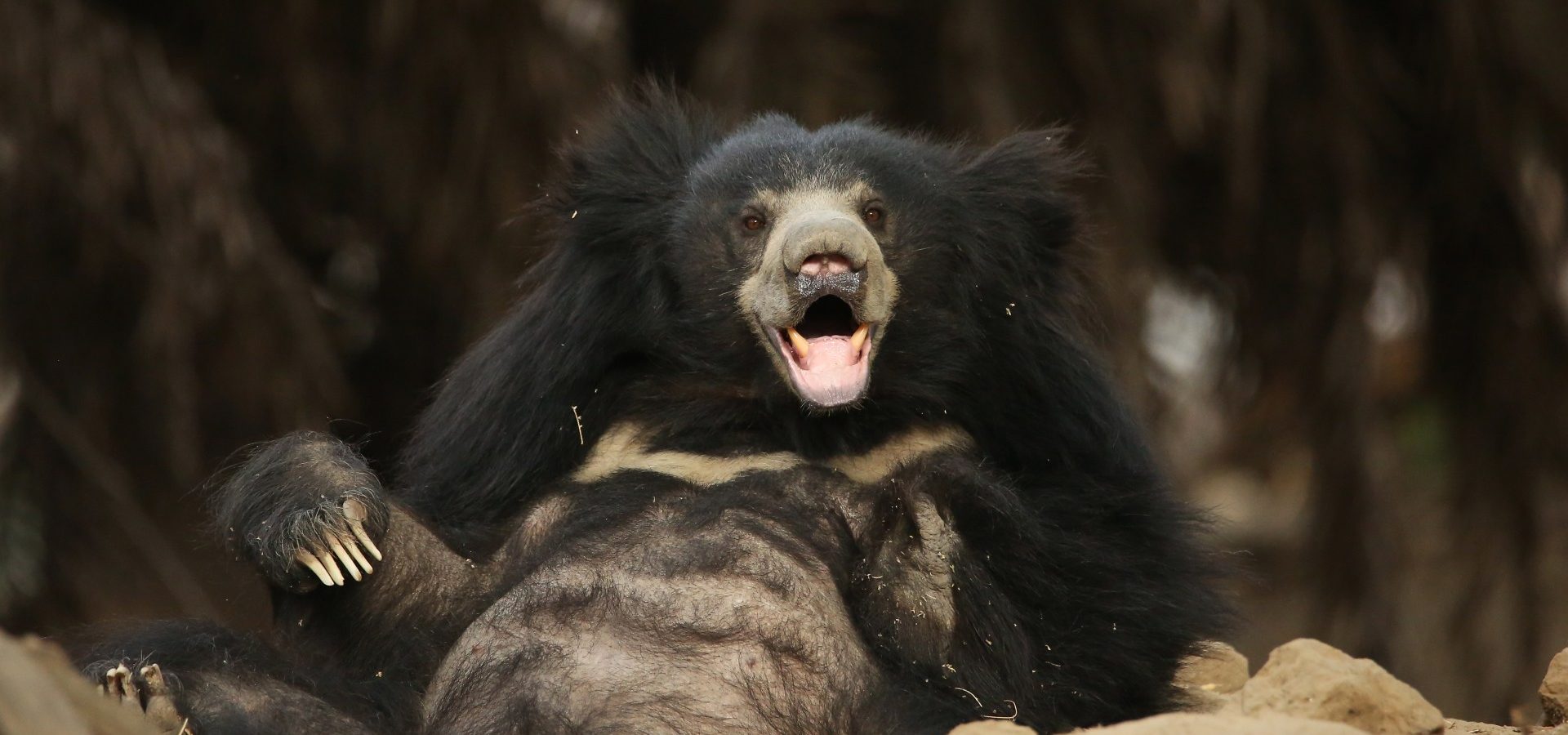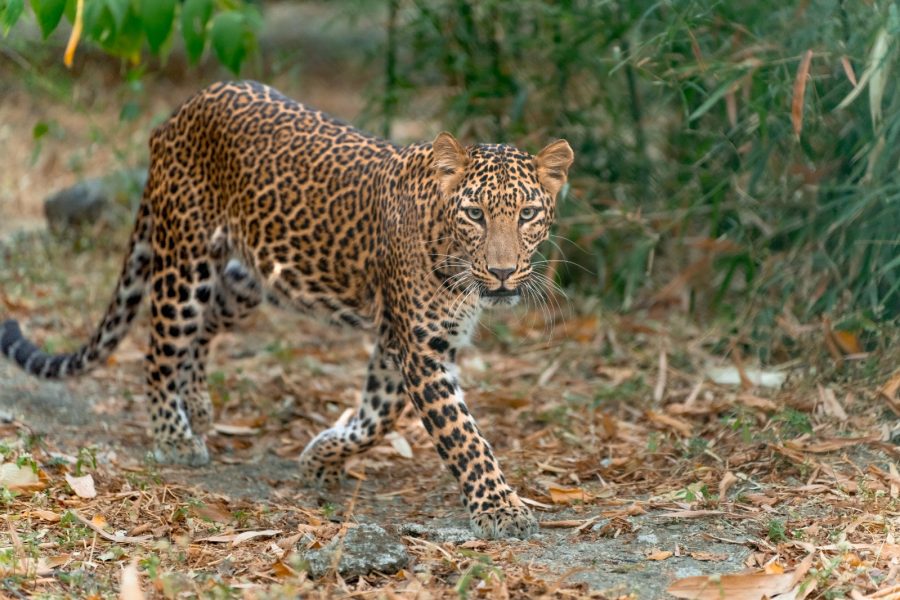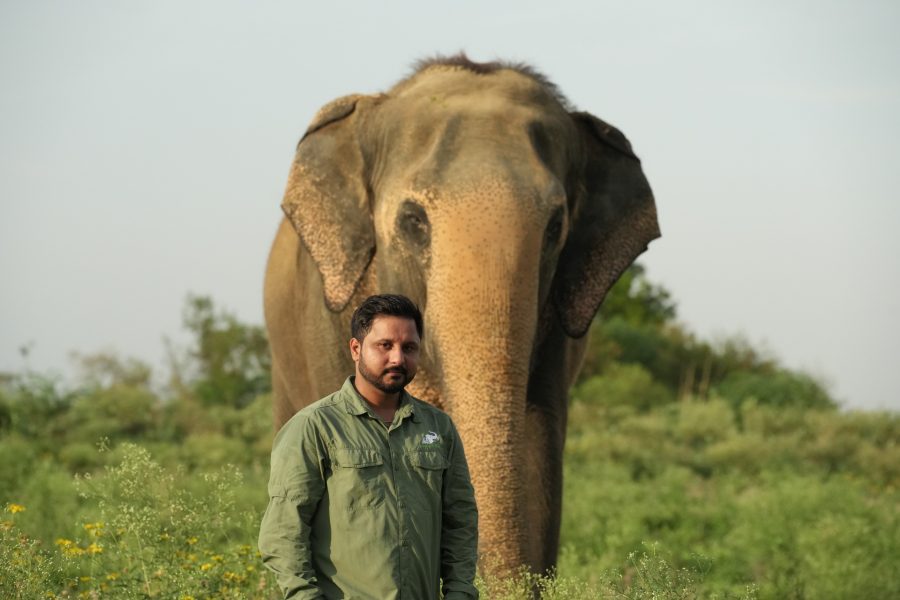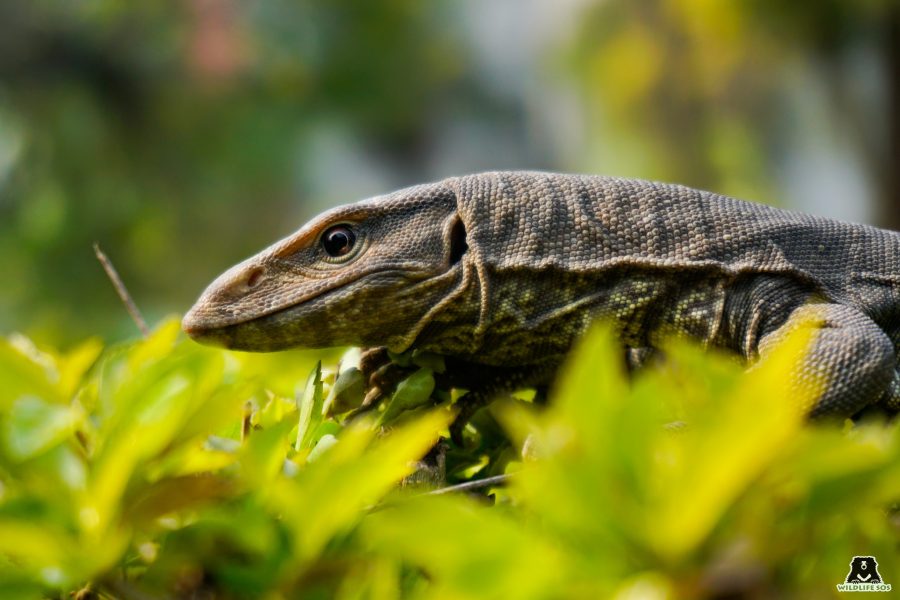In the early hours of the morning when Rose passed away, the sun shone brightly, its warm rays casting a comforting glow upon the earth. The air, windier and cooler than usual, spread a profound stillness across the Agra Bear Rescue Facility, as if nature itself sensed the impending loss. The trees, in the midst of turning new leaves and shedding the remnants of winter, bowed solemnly with each gust of wind, honouring the bear who had roamed beneath their shade for nearly eight years. To depart in spring is a poignant farewell, deserving remembrance with every blooming flower.
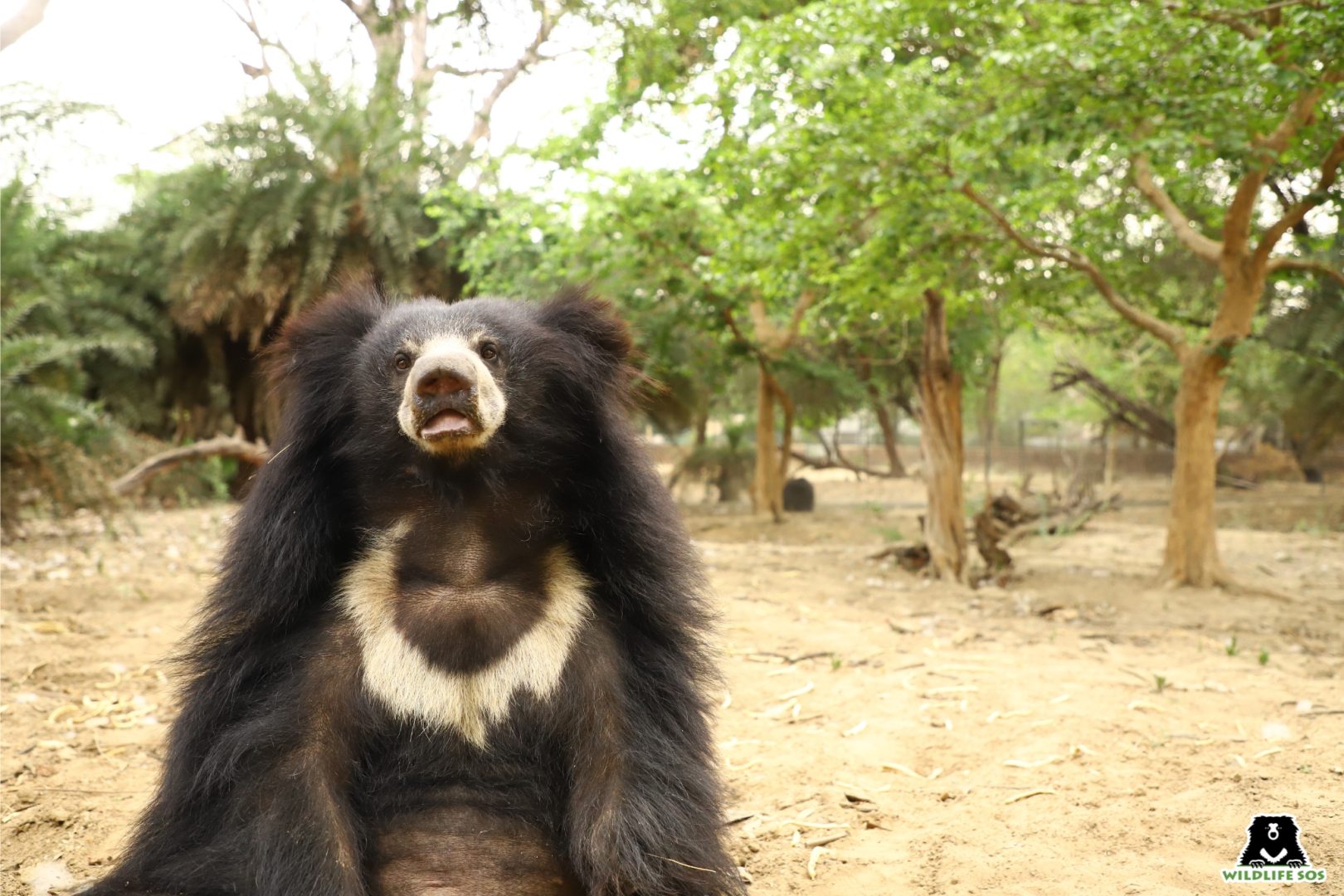
Rose was a nearly one-year-old wild sloth bear when rescued by Wildlife SOS in 2016. It was during the harsh winters of Bhopal when villagers living close to a jungle first spotted a bear cub limping and dragging what appeared to be a mangled left front paw. Despite her condition, Rose, just a cub at the time, displayed unparalleled resilience, using her tiny muzzle as a crutch to move forward and search for food near the village. With no mother’s love keeping her warm and helping her feel safe, Rose was becoming weaker and thinner by the day. Noticing this rapid, heart-breaking change is what prompted the villagers to contact the local forest department.
https://www.youtube.com/watch?v=uT0onIF0xx8&t=2s
Young Rose was vulnerable without the protection of her mother, and this marked the moment when Wildlife SOS and the forest department intervened to assist the cub. To ensure her safety, a swift move was made to find the ailing bear. She was finally located hiding amidst trees, trying to move away as quickly as her remaining limbs could allow.

For the immediate treatment that she needed, Rose was first taken to Wildlife SOS’s Van Vihar Bear Rescue Facility. In a way that indicated a natural apprehension, she attempted to defend herself by swinging her injured forelimb. The veterinarians at Wildlife SOS were overwhelmed to see the bear’s strength and bravery, even in her emaciated state. A sensitive decision was taken to give Rose some time to acclimate to the presence of those who had come to rescue her.
As medical examinations progressed, it became evident that Rose’s injury was most likely from a vicious jaw trap, from which she had perhaps struggled to release herself. The wound caused by this had been severely infected. With her chances of survival in the wild slim, Rose was brought to Wildlife SOS’s Agra Bear Rescue Facility (ABRF), where dedicated staff provided her with the best of care. The medical team initiated a regimen for her wounds, and the caregiving staff ensured that her enclosure accommodated her every need.
Rose soon began to respond to the attention she had been consistently receiving, and won the hearts of one and all. As they look back at her journey at ABRF, the veterinarians at the facility cherish the many pleasant memories Rose has left us with. One of the doctors tending to her said, “Rose was undoubtedly the most beloved bear at ABRF. All of us were amazed by her intelligence, and how quickly she grasped the cues during target training sessions, making her routine checkups smooth and easy.”
Rose’s caregiver, who always made sure that she remained comfortable and cheerful, has been deeply affected by her passing. For eight years since she arrived, he maintained a daily ritual of visiting Rose first every morning. He recalls how she was shy in her initial days at the centre, and proudly claims that he was the first one Rose bonded with. “To me, she was more than just an animal; she was a soul, like any other human being. That’s why I always called her by her name. Do you know that she recognised her own name? I’d stand outside her enclosure, call her name, and she’d come wobbling on her three limbs in the hope of getting a few extra treats!”
It was in early October 2023 that Rose began to show a limp on her left hindlimb, which eventually led to hindquarter lameness. Her appetite waned, even for her most-loved treat: honey. Regular medical screenings for bears under Wildlife SOS care are crucial, especially due to the prevalence of tuberculosis among sloth bears. Despite receiving prophylactic medicines, Rose tested positive for tuberculosis in January 2024. This led to Rose becoming entirely reliant on intravenous fluid therapy. Prolonged paralysis and recumbency played a dire role in her downward sloping health, compromising her cardiopulmonary system. Rose peacefully passed away in April 2024, with her devoted caregiver and our team by her side.
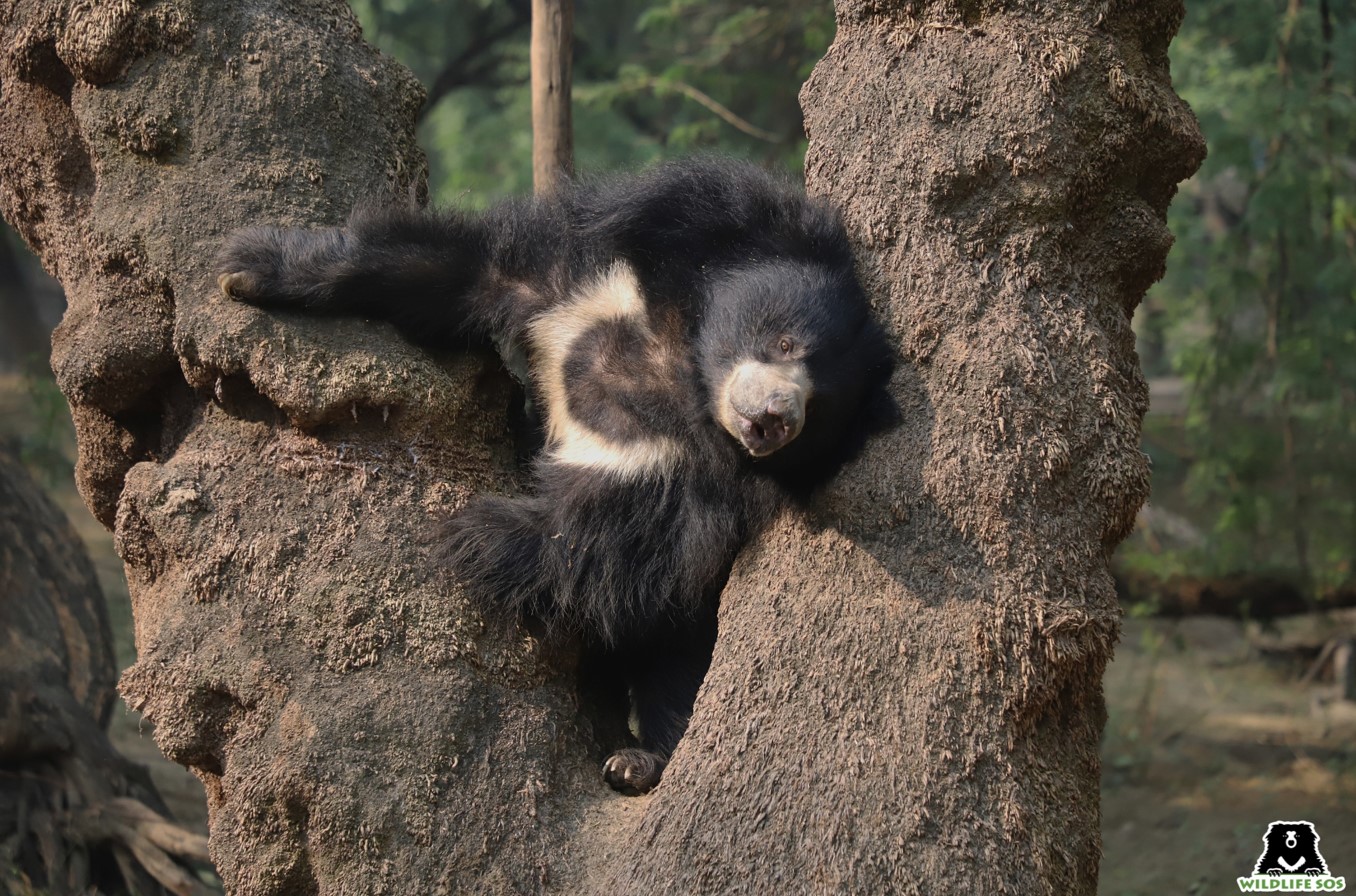
Remembering Rose, one cannot help but marvel at the sheer strength she possessed to thrive. Her zest for life was palpable in the ingenious ways she overcame the loss of her foot. The almost 25-ft-long trees in her enclosure posed no challenge for her as she effortlessly ascended to the top, leaving onlookers in awe. Rose would spend hours on a high branch, and would have to be coaxed to come down with the help of delicious treats! Once back on the ground, she would use her lone front paw to dig pits, within which she would nestle and relish the tasty fruits provided by her caregiver.

In her life, Rose was able to teach us the power of personal will in overcoming trauma. While she found trust in the humane care being given by our caregiving and medical team, Rose formed a lovely companionship with Bintha and Mandro, her enclosure mates. Called the ‘three musketeers’ by the Wildlife SOS staff, Rose was the peacemaker amongst the three. Any fight between Bintha and Mandro was quickly resolved by Rose. With Rose gone, their enclosure feels emptier and lonelier for Bintha and Mandro, who dearly miss their beloved companion. Though she may no longer be with us, her legacy endures in the hearts of those touched by her spirit, reminding us to live life to the fullest. Rose serves as a timeless inspiration, urging us to embrace each moment with courage and determination.

